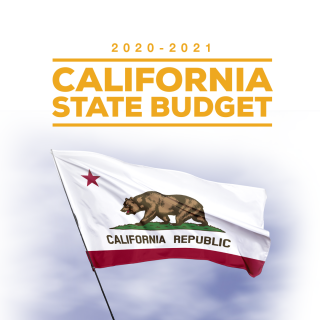Renovation keeps SF’s rail history alive in the Excelsior
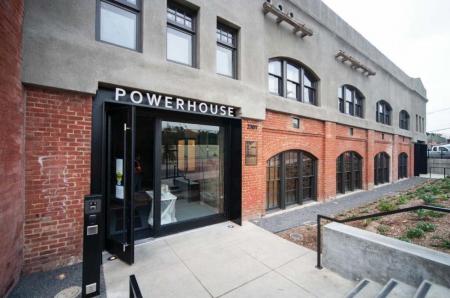
San Francisco, CA -- Work is complete on a meticulous renovation of the Geneva Car Barn and Powerhouse, part of San Francisco’s railway history in the Excelsior District, the San Francisco Recreation and Park Department announced today.
The historic landmark will open to the public as a hub for creativity, performance, youth arts education and community connection when health orders allow. In the meantime, Performing Arts Workshop, Rec and Park’s programming partner, is offering online arts education.
The $14 million project represents the first of two phases of improvements to the Geneva Car Barn and Powerhouse, which is made up of two adjoining structures that served San Francisco’s first electric streetcars: the single story, 3,000-square foot Powerhouse and the two-story, 13,000-square foot office building known as the Car Barn.
Rec and Park and Public Works broke ground on Phase 1, a complete renovation of the Powerhouse portion in 2018. The building’s antique doors and windows have been restored, and glass flooring showcases its historic basement and tunnels. The renovated building is now earthquake safe and outfitted with storefront doors, a new roof, improved entrances, and new mechanical and electrical systems. The ADA-accessible venue boasts an office and green room, a floor with radiant heat, and audiovisual equipment.
While the Geneva Car Barn and Powerhouse is under the jurisdiction of Rec and Park, the renovation and activation of the space is part of a multi-agency coalition which includes the Office of Economic and Workforce Development (OEWD), the Office of District 11 Supervisor Ahsha Safai, Public Works, the San Francisco Municipal Transportation Agency, the Planning Commission and the San Francisco Arts Commission. The renovation was made possible by the 2012 Clean and Safe Neighborhood Parks Bond Parks Bond, state funding advocated for by District 19 Assemblymember Phil Ting, the City’s general fund, and Historic Preservation and New Market Tax Credit Funds and grant funding through the partnership with the Community Arts Stabilization Trust (CAST).
“I’m thrilled to see the completion of the Geneva Car Barn project, creating a place to nurture and inspire generations of local talent. It’s important to invest in the arts, and I’m proud to have championed $3.5 million in state funding that helped transform this historic landmark into a community treasure,” said Assemblymember Phil Ting (D-San Francisco), chair of the Assembly Budget Committee.
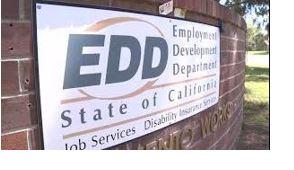 Overwhelmed with constituents needing help with unemployment benefits, state legislators have exhausted all avenues at their disposal to get resolution for the people we serve. They've waited months for EDD to provide a roadmap out of this crisis, but none has been forthcoming. While there have been recent executive mandates announced by Governor Newsom to address issues previously highlighted by lawmakers, they unfortunately only scratch the surface of the disaster that is EDD. They sent a letter urging further action to improve EDD operations. Read the entire letter here:
Overwhelmed with constituents needing help with unemployment benefits, state legislators have exhausted all avenues at their disposal to get resolution for the people we serve. They've waited months for EDD to provide a roadmap out of this crisis, but none has been forthcoming. While there have been recent executive mandates announced by Governor Newsom to address issues previously highlighted by lawmakers, they unfortunately only scratch the surface of the disaster that is EDD. They sent a letter urging further action to improve EDD operations. Read the entire letter here: ![]() EDD Letter to Governor
EDD Letter to Governor 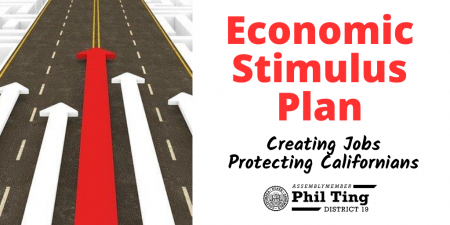 Sacramento – Key working groups from both houses of the California State Legislature are prioritizing economic recovery in the final weeks of session and have developed a joint $100 billion stimulus plan, building upon the successful collaboration that led to a balanced state budget addressing the $54 billion deficit.
Sacramento – Key working groups from both houses of the California State Legislature are prioritizing economic recovery in the final weeks of session and have developed a joint $100 billion stimulus plan, building upon the successful collaboration that led to a balanced state budget addressing the $54 billion deficit.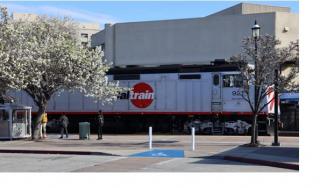 Support includes Assemblymember Phil Ting (D-San Francisco). The full statement can be found here:
Support includes Assemblymember Phil Ting (D-San Francisco). The full statement can be found here: 
